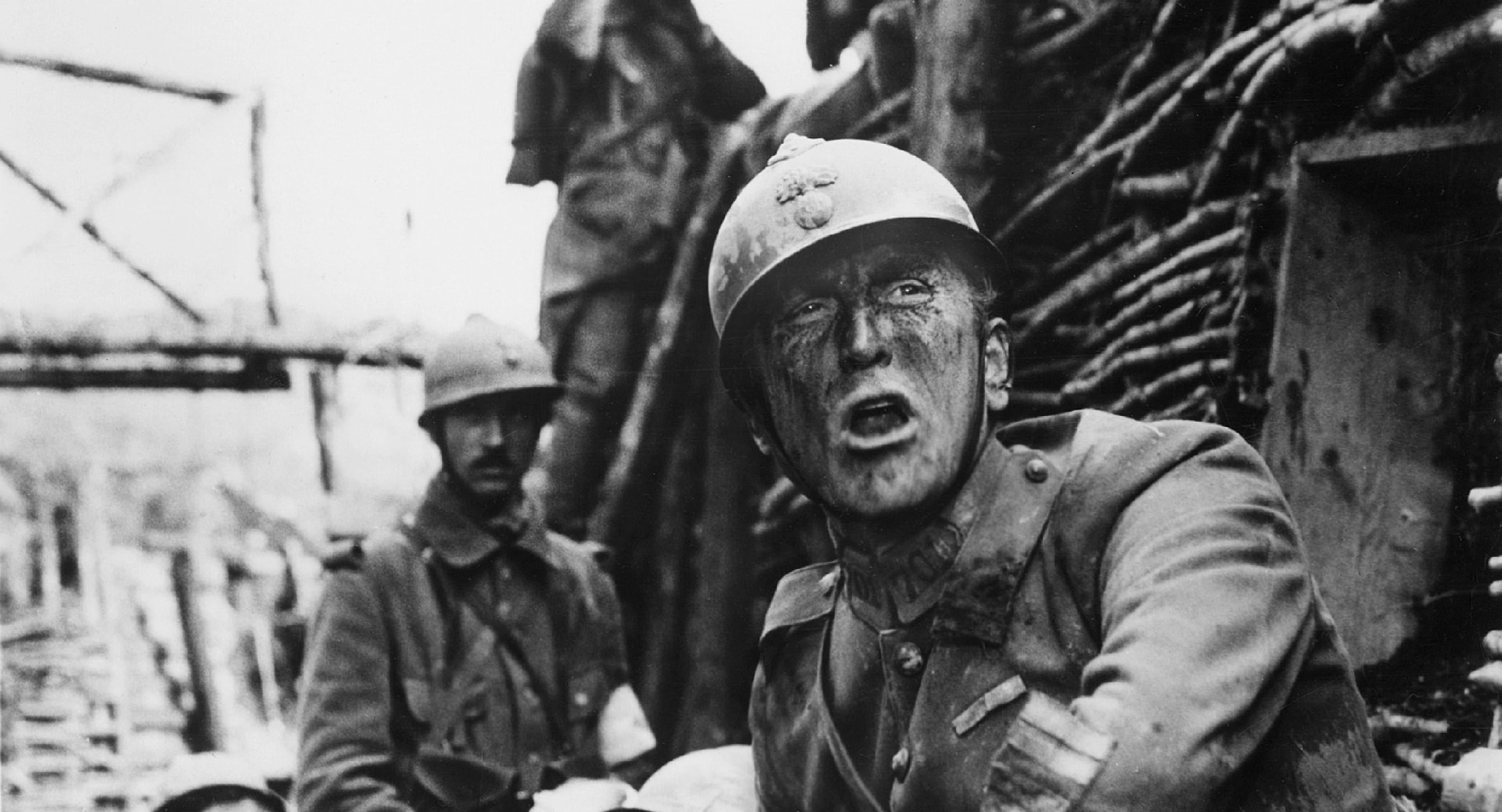Paths of Glory – Film Review
Published January 22, 2022

1916. The trench warfare between the French and Germans on the battlefields of France results in little advancement of troops on either side – each advancement in tens of meters rather than kilometers – but in many casualties. Thus, the request by French General George Broulard to his subordinate General Paul Mireau to lead an attack to capture the Anthill, a key German-held position which is just visible from the current French trench position, is generally regarded as futile. The request is largely one out of want for personal glory for the French military’s upper echelon with little regard for the soldiers.
Mireau hesitates in accepting the assignment until he learns that a prestigious promotion is on the line, one that is his regardless of success or failure. The regiment he assigns to carry out the attack is led by Colonel Dax, who has no other option but to obey orders despite both he and Mireau knowing the regiment’s casualties would number over half without any guarantee of success. While Mireau’s eyes are on his own personal gain, Dax is concerned both with carrying out the mission to the best of his ability while protecting his soldiers as a collective. What happens on the battlefield leads to a further rift in overall beliefs between Mireau and Dax in what is best for French society. What also results from the battle is a legal issue scapegoating three of Dax’s soldiers, he who will protect his men to the best of his abilities against the cards stacked against them by the military elite.
Stanley Kubrick was in his twenties when he made Paths of Glory, a movie that you would expect some old, seasoned veteran of filmmaking to craft. Of course, we all know that Kubrick eventually did go on to achieve master status, but he wasn’t considered one at the time of this film’s release. But it would be clear to anyone who watches this movie that the man behind it would only go on to bigger and even better things in the future.
It is a legitimately staggering anti-war film brought to life marvelously by Kubrick’s incredible vision. It may be a little bit on the shorter side, clocking in at a total of eighty-eight minutes, but almost every minute of that running time is used excellently. There truthfully isn’t a scene here that I feel could have been removed in order to tighten up the flow of things. Each moment feels totally earned and like it has its place in the grand scheme of things.
This is an unbelievably complex film in all the best ways and one that will require multiple viewings in order to fully get a grasp on everything. For some, this will be annoying. After all, not everybody wants to watch a movie several times just for them to completely get what the director was trying to say, but I’ve always been a champion of this because it shows that with the right script, films can be the most beautiful works of art out there.
All of the acting is terrific here as well. Kirk Douglas absolutely shines in the role of Colonel Dax, the commanding officer of the 701st Infantry Regiment. Of course, it goes without saying that Douglas had one of the most memorable careers of any actor out there, but I feel as if his work in this film is quite underrated. He feels so natural in every scene, and so does Ralph Meeker who portrays Corporal Phillippe Paris of the 701st Infantry Regiment.
Cinematography is obviously an incredibly important element of any film. If there’s great camera work to be found in a movie, it can be nothing short of breathtaking and yet that word still doesn’t seem quite big enough to describe just how impressive Georg Krause’s cinematography here truly is. It’s haunting, emotional, and oh so grand.
And really, Paths of Glory , in general, is oh so grand. It helped put Stanley Kubrick on the map and I’m glad that it did because he ended up having one of the best directing careers out of anybody in the industry. You know it must be a great film if it was released all the way back in 1957 and is still being watched by countless people all these years later.
